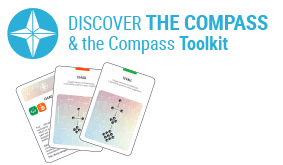https://blog.itcilo.org/wp-content/uploads/2008/12/iab-digital-video-ad-effectiveness-case-study-3-e1443643805340.jpg
1612
2087
wambeke
https://blog.itcilo.org/wp-content/uploads/2017/06/itc-ilo-blog-logo-small.png
wambeke2008-12-08 10:43:052017-11-07 21:18:27Instructional video
https://blog.itcilo.org/wp-content/uploads/2017/10/podcast.jpg
340
510
wambeke
https://blog.itcilo.org/wp-content/uploads/2017/06/itc-ilo-blog-logo-small.png
wambeke2008-10-20 04:00:322017-11-02 15:29:02Audioblogging ?
https://blog.itcilo.org/wp-content/uploads/2010/11/toolkit.jpg
1066
1600
wambeke
https://blog.itcilo.org/wp-content/uploads/2017/06/itc-ilo-blog-logo-small.png
wambeke2008-10-06 07:00:042017-11-03 13:57:41Marketing distance learning courses
https://blog.itcilo.org/wp-content/uploads/2008/02/rss.jpg
516
768
wambeke
https://blog.itcilo.org/wp-content/uploads/2017/06/itc-ilo-blog-logo-small.png
wambeke2008-02-21 09:36:312017-10-31 14:42:09RSS
https://blog.itcilo.org/wp-content/uploads/2008/02/screencast.jpg
155
324
wambeke
https://blog.itcilo.org/wp-content/uploads/2017/06/itc-ilo-blog-logo-small.png
wambeke2008-02-01 15:55:592017-10-31 14:43:03Screencasting
https://blog.itcilo.org/wp-content/uploads/2007/12/maxresdefault.jpg
700
1280
wambeke
https://blog.itcilo.org/wp-content/uploads/2017/06/itc-ilo-blog-logo-small.png
wambeke2007-12-11 14:08:432017-10-31 14:37:44Online Educa Berlin
https://blog.itcilo.org/wp-content/uploads/2007/09/Visual.jpg
829
1280
wambeke
https://blog.itcilo.org/wp-content/uploads/2017/06/itc-ilo-blog-logo-small.png
wambeke2007-09-25 10:46:502017-10-31 14:21:44Learning and Training in an audiovisual world
Scroll to top




 A lot of colleagues have heard about
A lot of colleagues have heard about 

